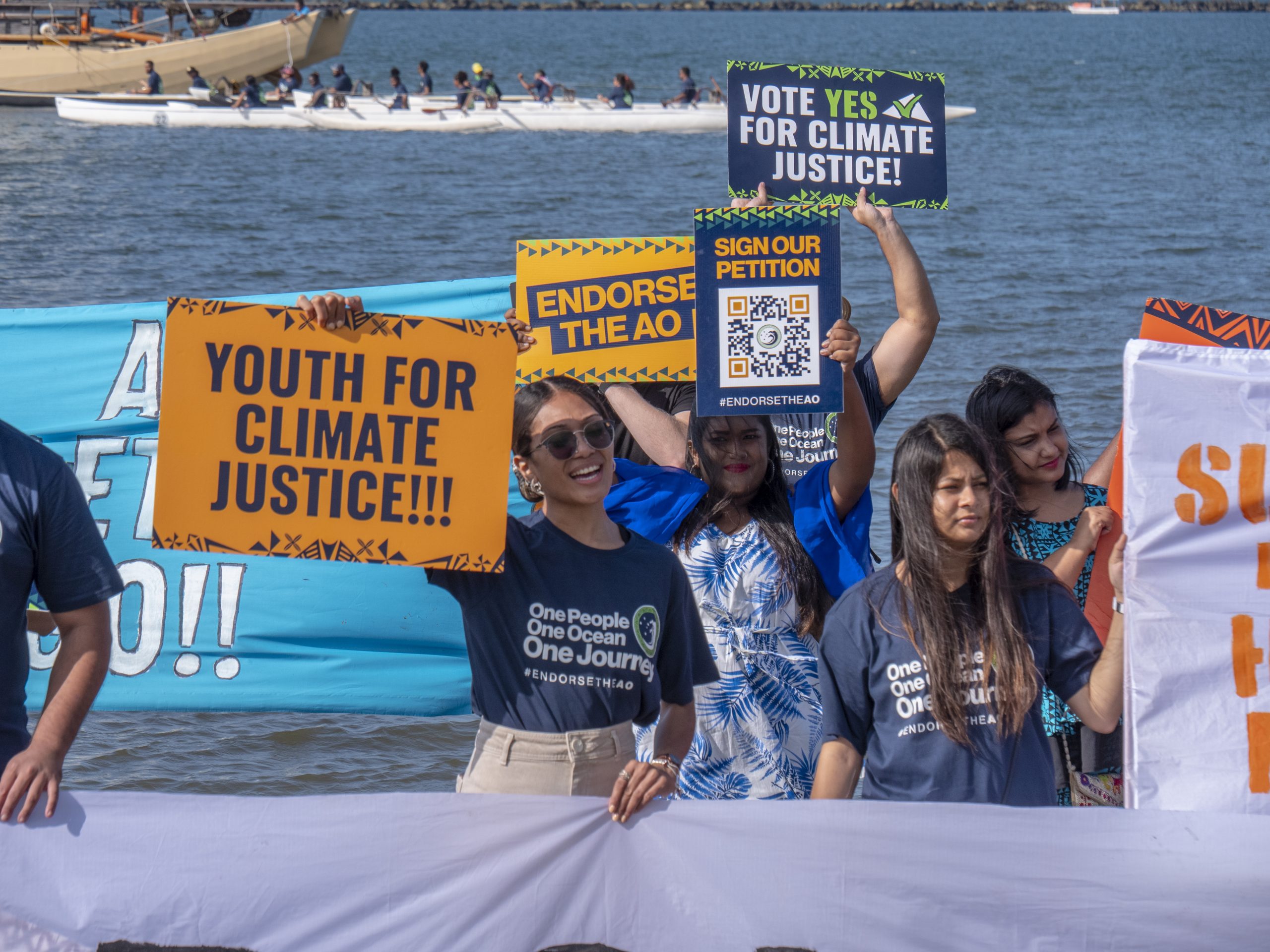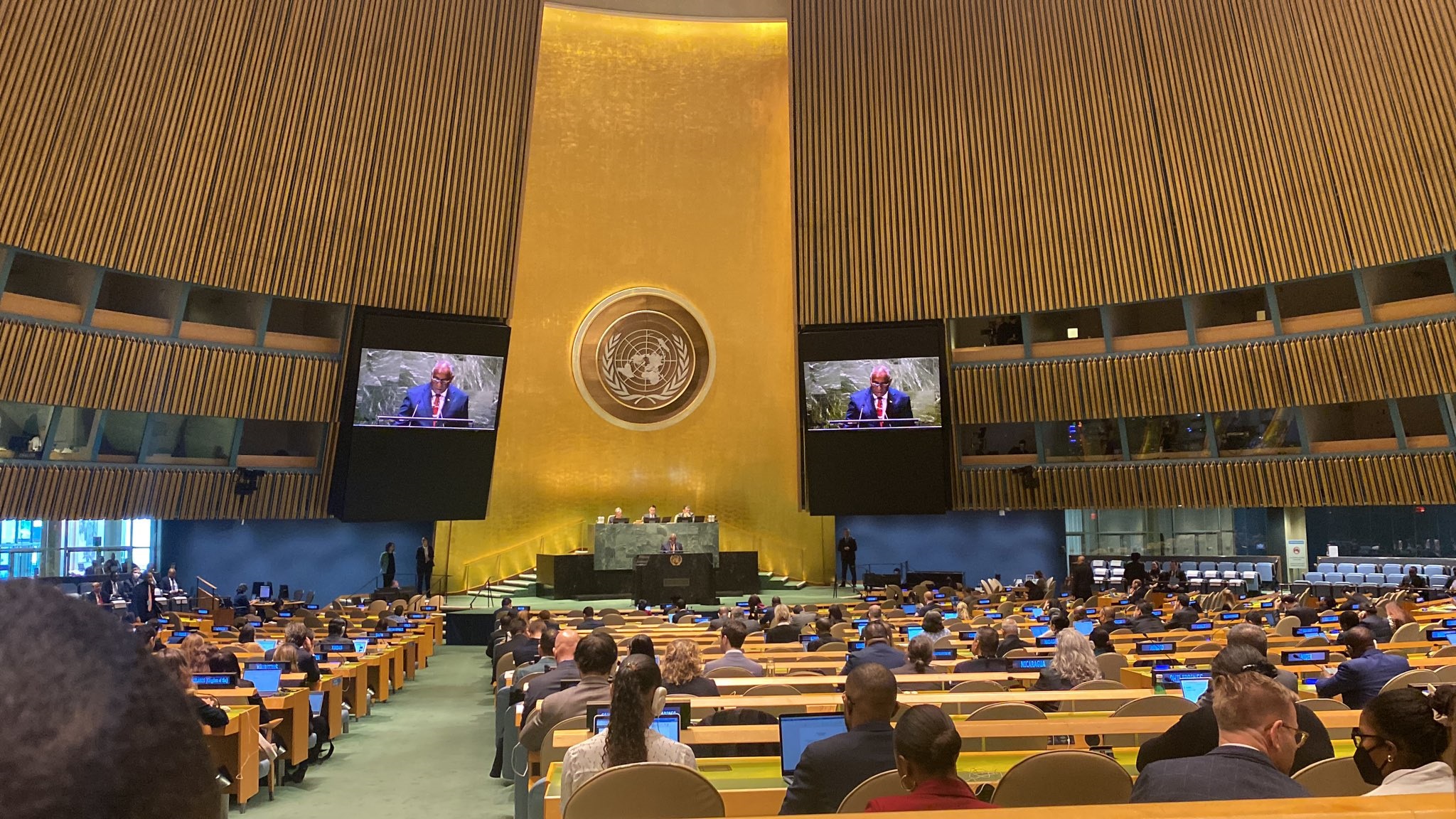By Sanjesni Kumar
The United Nations General Assembly (UNGA) has agreed to seek the International Court of Justice’s opinion on the obligations of states regarding climate change and human rights.
The resolution passed by consensus on Wednesday this week is historic and is a victory of climate justice for Vanuatu and Pacific youth groups should as it means that major polluters can be held accountable for climate inaction.
👏 Today, the UN General Assembly adopted a resolution by consensus, requesting an advisory opinion of the International Court of Justice @CIJ_ICJ on the obligations of States in respect of #ClimateChange.
Watch ⬇️ pic.twitter.com/LGnY34qGyH
— UN GA President (@UN_PGA) March 29, 2023
“Today we have witnessed a win for climate justice of epic proportions,” said the Prime Minister of Vanuatu, Ishmael Kalsakau.
“Vanuatu sees today’s historic resolution as the beginning of a new era in multilateral climate cooperation, one that is more fully focused on upholding the rule of international law and an era that places human rights and intergenerational equity at the forefront of climate decision-making.”
The historic idea to obtain ICJ Advisory opinion began four years ago by 27 law students at the University of the South Pacific in Vanuatu.
The government of Vanuatu started lobbying for the measure in 2021 and gained support of governments, civil society groups and regional organisations.
The core group of 18 countries helped in the development of resolution. Vanuatu gained 133 co-sponsored states and more than 1,700 civil society groups.
BREAKING: The UN General Assembly has called on the International Court of Justice to investigate State crimes against the climate system. “Today we have witnessed a win for climate justice of epic proportions,” said Ishmael Kalsakau, Prime Minister of Vanuatu. pic.twitter.com/ShD83qZuWM
— Progressive International (@ProgIntl) March 29, 2023
“We are just ecstatic that the world has listened to the Pacific Youth and has chosen to take action,” said Cynthia Houniuhi, Solomon Islands based President of Pacific Island Students Fighting Climate Change (PISFCC).
“Through no fault of our own, we are living with devastating tropical cyclones, flooding, biodiversity loss and sea level rise. The intensity and frequency of it is increasing each time. We have contributed the least to the global emissions that are drowning our land.
“As young people, the world’s failure to stop planet killing emissions is not a theoretical problem. It is our present and it is our future that is being sold out.”
The Regional Policy Coordinator of the Pacific Islands Climate Action Network, Lavetanalagi Seru said the outcome at UNGA wa a win for people and communities across the world that were at the frontlines of the climate crisis.
“The Pacific has again exemplified that despite the threats of this existential crisis, we are resolute in our efforts to effectively and urgently ratchet up climate ambition, seeking avenues to protect the rights of those most vulnerable, including future generations, and uphold the principles of intergenerational equity.
“The work has only just begun, and the road to The Hague requires everyone to push their Governments to make submissions that highlight the clear linkages between the climate crisis and human rights when called on by the Court.”

“This isn’t the end of our campaign for climate justice,” said Vishal Prasad, PISFCC Campaigner.
“The court process will unfold, taking evidence from around the world. The real work begins in applying whatever the court advisory opinion says in domestic law, especially in countries that continue to drive the climate crisis with their toxic emissions.”
The latest Intergovernmental Panel on Climate Change report warned that to limit global warming to 1.5 degrees Celsius, greenhouse gas emissions must be nearly halved by 2030.
“Now we need all States to step up their ambition and act within the bounds of international law to keep global warming below 1.5 degrees and protect the fundamental human rights of the global citizenship,” said Vanuatu’s Minister of Foreign Affairs, Jotham Napat.
The core group of countries comprises Angola, Antigua & Barbuda, Bangladesh, Costa Rica, Germany, Liechtenstein, Federated States of Micronesia, Morocco, Mozambique, New Zealand, Portugal, Romania, Samoa, Sierra Leone, Singapore, Uganda, Vanuatu and Vietnam.
SOURCE: PASIFIKA ENVIRONEWS/PACNEWS













